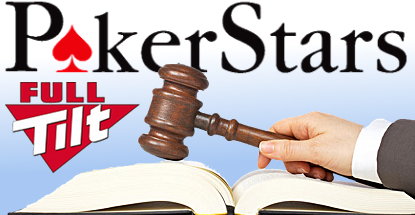 PokerStars and Full Tilt are breathing a little easier after an Illinois court dismissed a pair of nuisance lawsuits against the online gambling sites.
PokerStars and Full Tilt are breathing a little easier after an Illinois court dismissed a pair of nuisance lawsuits against the online gambling sites.
Illinois residents Kelly Sonnenberg and Judy Fahrner filed the suits way back in 2012, looking to capitalize on the Illinois Loss Recovery Act (ILRA), a nineteenth-century statute that allows individuals to collect “illegal gambling” losses suffered by third parties, provided those gamblers haven’t filed their own claims within six months of suffering their losses.
The suits were dismissed for lack of cause in March 2014 but the court gave the plaintiffs an opportunity to resubmit claims that met the ILRA’s requirements. The plaintiffs responded by adding the names of a couple players who’d actually gambled on Stars and Tilt.
On Tuesday, Judge David Herndon dismissed the updated suits, saying the plaintiffs had failed to demonstrate that Stars and Tilt had ‘won’ the losses at the center of the suits. An 1894 court decision involving the ILRA declared that it was “the winner, not the keeper of the house, who is liable to respond to the loser.” As Stars and Tilt only took a rake of the poker pots, Herndon said the plaintiffs were barking up the wrong tree.
Herndon’s ruling also noted that the plaintiffs, while alleging that “hundreds of thousands – possibly millions” of players had lost money playing on Stars and Tilt, had failed to specifically identify any winning gamblers or the dates on which these gamblers had generated their winnings.
Moreover, the plaintiffs had filed their claims more than a year after Black Friday, after which both Stars and Tilt exited the US market. As such, even if the plaintiffs’ claims had merits, Herndon said they’d missed their six-month window of opportunity.
Attorney Jeff Ifrah, who represented the poker companies in the suits, called Herndon’s ruling “a major victory for PokerStars and instructive for other online gambling providers facing similar attacks from plaintiffs seeking unjust windfalls.”
